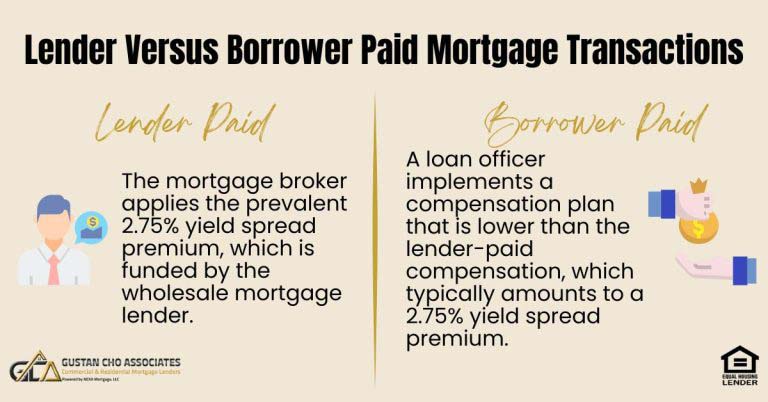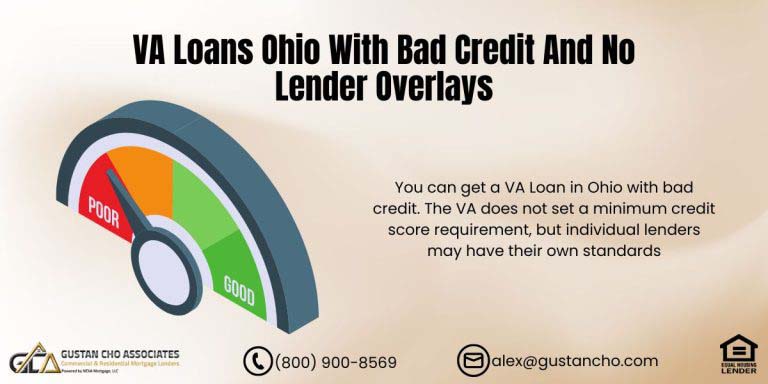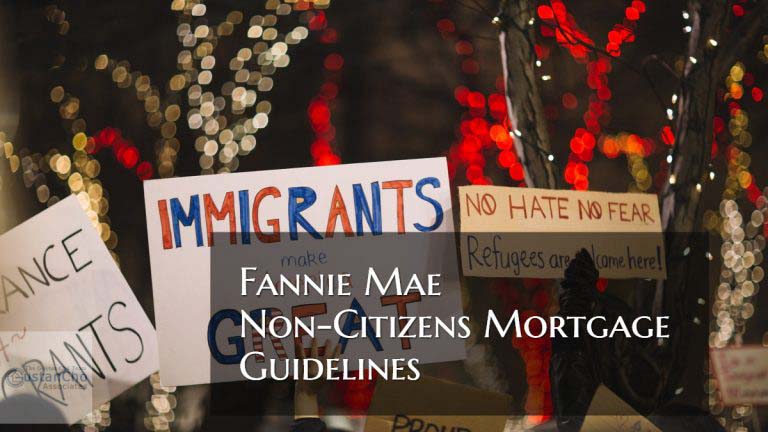This guide covers mortgage pre-approval issued by underwriters. Over 80% of our borrowers at Gustan Cho Associates are folks who either got a last-minute mortgage loan denial or are stressed during their mortgage process with their current lender. Alex Carlucci, a senior loan officer at Gustan Cho Associates, explains the reasons for a last-minute mortgage loan denial during the mortgage process:
The main reason for a last-minute mortgage loan denial or stress during the mortgage process is that the borrower was not properly qualified. Many loan officers issue mortgage pre-approval letters without fully qualifying mortgage borrowers.
Just because a borrower meets the minimum credit score requirements and meets the debt-to-income ratio requirements does not mean they automatically qualify for a mortgage loan. In the following paragraphs, we will cover mortgage pre-approval letters and compare a solid pre-approval and a not-so-solid mortgage pre-approval.
What Is a Mortgage Pre-Approval?
A mortgage pre-approval is a written statement or a document from a lender that indicates how much money you can borrow to buy a home, what types of loans you qualify for, and what interest rate you can expect to pay.
A pre-approval is based on a thorough review of your financial situation, including your income, assets, debts, and credit history. A pre-approval does not guarantee to get a loan or a specific interest rate.
Still, it gives you a realistic estimate of your borrowing power and shows sellers and agents that you are serious about buying a home. According to Zillow’s Consumer Housing Trends Report 2022, 85% of sellers prefer to accept an offer from a pre-approved buyer.
How to Get a Mortgage Pre-Approval
If you plan to buy a home, one of the first steps is to get a pre-approval mortgage. A mortgage pre-approval is a piece of document that shows how much money a lender is willing to lend you based on your income, assets, credit score, and other factors. A pre-approval can help you shop for a home confidently, make stronger offers, and speed up the loan process once you find your dream home. This blog will explain a mortgage pre-approval, how it differs from a pre-qualification and approval, and how to get one.
Pre-Approval vs. Pre-Qualification vs. Mortgage Approval
A mortgage pre-approval is different from a pre-qualification and an approval. A pre-qualification is a preliminary assessment of your financial situation based on the information you provide to the lender, such as your income, assets, and debts. A pre-qualification does not require a hard credit check or documentation, and it does not give you an exact amount or interest rate. Alex Carlucci, a senior loan officer at Gustan Cho Associates, explains the difference between a pre-qualification and a pre-approval as follows:
A pre-qualification is useful to get a general idea of how much you can afford, but it is not as accurate or reliable as a pre-approval. A pre-approval is a more in-depth evaluation of your financial situation based on your application, documentation, and credit report. A pre-approval requires a hard credit check and verification of your income, assets, and debts.
A pre-approval estimates how much money you can borrow, what types of loans you qualify for, and what interest rate you can expect to pay. A pre-approval is helpful when you are ready to shop for a home and make offers. A mortgage approval is a final decision by the lender to grant you a loan after you have found a home and submitted a purchase contract. An approval depends not only on your financial situation but also on the property details, such as the appraisal value, the title status, and the home condition. Approval may require additional documentation or verification from you or the seller. An approval confirms that you have met all the requirements for getting a loan and can close on the home.
How to Get Pre-Approved for a Mortgage
Getting pre-approved for a mortgage is similar to applying for a loan. You must provide key information and documents to the lender and authorize them to check your credit. Here are the steps to follow: Gather your financial documents. You must provide proof of your income, assets, and debts to the lender. Some of the documents you may need include:
- Pay stubs for the last 30 days
- W-2 forms for the last two years
- Tax returns for the last two years
- Bank statements for the last two months
- Investment statements for the last two months
- Credit card statements for the last two months
- Loan statements for any outstanding debts
- Retirement account statements for the last two months
- Proof of any other income sources, such as alimony, child support, or rental income
Check Credit Scores
One’s credit score is crucial for lenders’ loan eligibility and assessment of interest rates. To obtain your credit score without charge, refer to any of the three major credit bureaus: Equifax, Experian, or TransUnion. You can also use online tools that only require a soft credit pull initially for mortgage approval.
Minimum Credit Score For Mortgage Pre-approval
A higher credit score typically increases the likelihood of receiving pre-approval and securing a more favorable interest rate. Here are some common loan types and their typical credit score requirements. Conventional loans require a 620 or higher. FHA loans require a 580 or higher with a 3.5% down payment 500 or higher with a 10% down payment. VA loans: No minimum credit score, but lenders may have their standards. USDA loans require a 580 or higher. Non-QM loans depend on individual wholesale non-QM lenders.
Research Mortgage Lenders
Before you apply for pre-approval, consider comparing different lenders and their loan products, rates, and fees. You can use tools like Zillow to compare lenders and get personalized quotes based on your financial situation. Additionally, you can seek referrals from acquaintances, relatives, or real estate professionals. When choosing a lender, ensure they are reputable, licensed, and experienced in your local market. You can check the lender’s reviews, ratings, and complaints on websites like the Better Business Bureau, Consumer Financial Protection Bureau, or NMLS Consumer Access.
Apply For Mortgage Pre-Approval
Once you have your documents ready and have chosen a lender, you can apply for pre-approval online, by phone, or in person. You must fill out an application form with your personal and financial information and authorize the lender to check your credit. The lender may charge you a fee for the credit check and the pre-approval process.
The lender will review your application and documents and verify your income, assets, and debts. They will also evaluate your credit score, credit history, and debt-to-income ratio (DTI).
Your DTI represents the proportion of your monthly income allocated to debt repayment. The lower your DTI, the better your chances of getting pre-approved and a lower interest rate. Generally, lenders prefer a DTI of 36% or lower, but some loan programs may allow higher DTIs.
Receive Mortgage Pre-Approval Letter
Once the lender approves your application, you will receive a pre-approval letter detailing the approved loan amount,
eligible loan types, and the anticipated interest rate for your reference. The letter may also include some conditions or contingencies you must meet before final approval, such as providing additional documents or information. Typically, the validity of a pre-approval letter ranges from 60 to 90 days, determined by factors such as the lender and prevailing market conditions. If
your financial situation or interest rates change during this period, you may need to update or renew your pre-approval.
Benefits of Getting Pre-Approved for a Mortgage
Getting pre-approved for a mortgage benefits home buyers, such as helping them determine their budget and narrow their home search. By obtaining information about your borrowing capacity and anticipated interest rate, you can make an estimate of your monthly mortgage payments and calculate other expenses related to purchasing a house. This can help you avoid wasting time and energy on homes that are out of your price range or not suitable for your needs. It gives you more confidence and credibility when making offers.
A pre-approval letter shows sellers and agents that you are serious about buying a home and have the financial ability to do so. This can make you stand out from other buyers who may not have a pre-approval or who have a lower pre-approval amount.
A pre-approval can also give you more bargaining power and leverage when negotiating the price and terms of the contract. It speeds up the loan process once you find a home. Since you have already completed most of the paperwork and verification for the pre-approval, you can save time and hassle when applying for the final approval. This can help you close on the home faster and avoid potential delays or issues that could jeopardize the deal.
How Can Lenders Close 100% of Mortgage Pre-Approvals?
As mentioned earlier, over 80% of our borrowers are folks who either got a last-minute loan denial or are stressed during their loan process by another lender due to improperly being qualified and being issued a pre-approval letter by their loan officer.
The mortgage pre-approval is the most important phase of the loan process. All of our pre-approvals are full credit approvals by our mortgage underwriters. Our mortgage pre-approval letters are signed off by one of our mortgage underwriters. Our underwriters will not just review the borrower’s income and credit scores.
Mortgage underwriters will thoroughly review mortgage documents like tax returns, W2s, paycheck stubs, 60 days bank statements, and other documents before issuing and signing off on any pre-approval.
How Are TBD Property Underwrite Mortgage Pre-Approval Issued
Some pre-approvals are issued via TBD Property Underwrite. With TBD Property Underwriting pre-approvals, mortgage underwriters will fully underwrite the mortgage file. Most mortgage loan officers are issuing mortgage pre-approval instead of underwriters, which can be risky. A pre-qualification is just a question and answer session between the borrower. The licensed mortgage loan originator can issue a pre-qualification letter. A pre-qualification is when the mortgage loan originator reviews the following:
- Completed 1003 mortgage loan application
- Verifies the gross monthly income of the borrower or borrowers
- Runs a credit check
- Runs the file to Fannie Mae’s Automated Underwriting System
We strongly recommend that mortgage borrowers undergo pre-approval signed off by a mortgage underwriter versus a loan officer before signing a real estate purchase contract. This way, the borrower gets a full credit mortgage loan approval, and the only condition left is the property. Most seasoned real estate agents will require a mortgage pre-approval before showing homes.
Advantages Of A Mortgage Pre-Approval Issue By Underwriters Versus Loan Officers

A mortgage pre-approval underwritten by a mortgage underwriter is full credit approval. It will show what mortgage amount the borrowers and co-borrower will qualify for. It will show the maximum allowable housing expense, which includes principal, interest, insurance, mortgage insurance premium, and property taxes.
Borrowers with a solid pre-approval letter backed by the approve/eligible per DU Findings and fully underwritten by a mortgage underwriter will close their home loan. It will show the seller’s team that the borrower is a strong qualified buyer and mean business.
How Do I Get Pre-Approved By An Underwriter
Homebuyers interested in getting a full credit mortgage loan approval with a direct lender with no lender overlays on government and conventional loans can call us at Gustan Cho Associates at 800-900-8569 or text us for a faster response. Or email us at gcho@gustancho.com or visit us at Gustan Cho Associates at www.gustancho.com and click the APPLY NOW icon on the top right of my website. It is a 4-page 1003 mortgage application.
Once borrowers submit an online application, we will get alerted and review the application. A tri-merger credit report will be run, and the mortgage process will start. It will get submitted to Fannie Mae’s Automated Underwriting System for automated approval. Once we get the approve/eligible, the loan process can then proceed, and mortgage documents will be collected. The file will be assigned to a loan officer assistant and prepped for processing.
A mortgage processor will get assigned. The mortgage processor will then prepare the file for the underwriter to underwrite the file. If the borrower meets all the guidelines, the mortgage underwriter will issue a conditional loan approval, our pre-approval. Borrowers can shop for a home once they get pre-approval issued by a mortgage underwriter. Once the borrower gets an executed real estate purchase contract, the property will be underwritten, and a clear to close will be issued.
Mortgage Documents Required
We need the last two years’ W2s from an employer or employers and personal tax returns for hourly and salaried employees—two most recent or 30 days paycheck stubs. Two most recent checking and savings account Bank Statements, 401(K), Liquid Assets, Investment Accounts, and all other asset accounts. Income and asset information for self-employed mortgage loan borrowers. Last two years’ personal and business tax returns. Personal financial statement. Year-to-date profit and loss statements.
Letter of Explanations Required During The Mortgage Process
Letters of explanation are required if you have gaps in employment, unemployment, underemployment, or a change to a different line of work or profession. If you have derogatory information such as bankruptcy, deed-in-lieu of foreclosure, foreclosure, short sale, judgments, tax liens, collections, charge-offs, or late payments on your credit report, a letter of explanation to underwriters will be required. Overdrafts in the past year are frowned upon by lenders, but one or two overdrafts are allowed as long as it is accompanied by a good letter of explanation.
Other Applicable Documents That May Be Required If It Applies To You As A Borrower
Bankruptcy Discharge paperwork, all pages. Child Support Documentation paperwork. Lease Agreements and contracts in the event you own rental properties. Verification of Mortgage in the event you own other residential or commercial properties. Getting pre-approved for a mortgage is one of the best things you can do to prepare for buying a home.
A pre-approval shows how much money you can borrow, what types of loans you qualify for, and what interest rate you can expect to pay. A pre-approval also gives you an edge over other buyers, helps you close on the home faster, and reduces stress and uncertainty during home-buying.
Contact us today if you are ready to get pre-approved for a mortgage. As a well-established, licensed, and knowledgeable mortgage broker, we possess the expertise to assist you in identifying the most suitable loan product tailored to your specific requirements. We will guide you through every step of the pre-approval process and answer any questions you may have.









